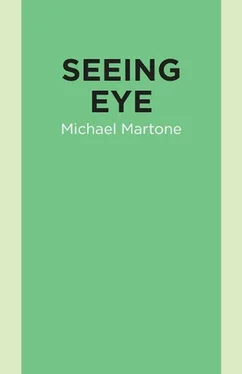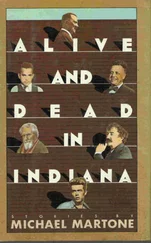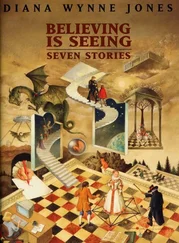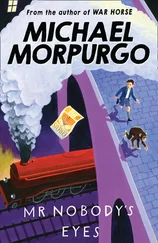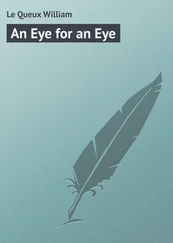Michael Martone - Seeing Eye
Здесь есть возможность читать онлайн «Michael Martone - Seeing Eye» весь текст электронной книги совершенно бесплатно (целиком полную версию без сокращений). В некоторых случаях можно слушать аудио, скачать через торрент в формате fb2 и присутствует краткое содержание. Год выпуска: 2013, Издательство: Dzanc Books, Жанр: Современная проза, на английском языке. Описание произведения, (предисловие) а так же отзывы посетителей доступны на портале библиотеки ЛибКат.
- Название:Seeing Eye
- Автор:
- Издательство:Dzanc Books
- Жанр:
- Год:2013
- ISBN:нет данных
- Рейтинг книги:5 / 5. Голосов: 1
-
Избранное:Добавить в избранное
- Отзывы:
-
Ваша оценка:
- 100
- 1
- 2
- 3
- 4
- 5
Seeing Eye: краткое содержание, описание и аннотация
Предлагаем к чтению аннотацию, описание, краткое содержание или предисловие (зависит от того, что написал сам автор книги «Seeing Eye»). Если вы не нашли необходимую информацию о книге — напишите в комментариях, мы постараемся отыскать её.
Seeing Eye — читать онлайн бесплатно полную книгу (весь текст) целиком
Ниже представлен текст книги, разбитый по страницам. Система сохранения места последней прочитанной страницы, позволяет с удобством читать онлайн бесплатно книгу «Seeing Eye», без необходимости каждый раз заново искать на чём Вы остановились. Поставьте закладку, и сможете в любой момент перейти на страницу, на которой закончили чтение.
Интервал:
Закладка:
The chef stood near the door, waiting for someone to come up to him, umbrellas scattered around him. He was dressed in a white uniform — shoes, pants, tunic. The kerchief he wore when he worked at a table was in his pocket. He wore a white hat. His hair was wet. The only English he knew was Don Hall , the man who opened Takaoka, the restaurant named for our sister city, and who had invited him here. There were small groups of loud people all around him in the corridor. He went on up the ramp to claim his luggage.
The new conveyor wound around the room. The belt skimmed along just above the floor, curved back on itself, bulged, detoured around ceiling columns. The suitcases and flight bags went from one clutch of people to another, sniffed at their heels for an owner, wheeled around, meandered toward a businessman with a coat over his shoulder, and then disappeared behind the rubber strips in the wall.
His bags did not appear.
He stared at the black sheets moving by his feet. Only the women at the rental desk remained — red, green, orange, yellow — placing envelopes in lighted boards on the walls. There were a few men at telephones.
At last, the small case that held his knives appeared at his feet. The bright yellow tag had been placed on its handle. The knives had been taken away as he boarded a plane. He had tried to explain. They had given him a yellow tag instead.
He chased after the case, catching up to it in a few strides. Together they waited for more luggage. The conveyor stopped. Across the empty room he saw a few clumps of unclaimed luggage, none of it his.
Later that evening, he was in a restaurant kitchen. It wasn’t clear that this was the restaurant where he was to work. He had been saying Don Hall to everyone, and now he was in a restaurant and here he felt more at home. The woman who had shown him to the kitchen sat across from him at the shining steel table. The kitchen had been cleaned at closing, and the metal sang in the bright light. There were chrome panels on the walls, woven aluminum racks, nickel trim on the oven doors. The sinks, the freezer doors, the shelves stacked with bone china were of stainless. He was stirring the burnishing balls with his hand. He lifted a dozen to his face, let them spill through his fingers back into the bright tin can. The drains were minted coins set into the floor.
The woman had been gesturing all the time. She lifted a silver hood on one of the tables. He saw tubs of butters and white pastes, yellow and red sauces, shaved meats and dried cheeses. She placed before him a loaf of bread and a pale green head of lettuce.
He opened his case and took out his knives, crossing two before him on his oiled cutting board. He held the head of lettuce in both hands for a second then set it down firmly as if he were setting a stone.
He cut into the little finger of his left hand on one of the first slices through the lettuce but did not realize it. There were drops of blood on the almost white leaves. He saw the darker veins running through the pale leaf.
The woman ran for help. He pressed the wound against the leg of his pants. He still wasn’t afraid, but he was alone again.
2
The man who was the official photographer for the Chamber came from one of those countries that has no language of its own.
He was the last known immigrant to the city.
He was taking pictures of the summer parade and was allowed to walk in the street. The children on the curb were waving Japanese flags. He wore several cameras, each with different lenses.
In the parade, the ambassadors from our sister city rode in a yellow bus. They wore blue kimonos and leaned out through the open windows. They took pictures of the children on the curb waving the Japanese flags. Their wide blue sleeves swung along the yellow sides of the bus. Red lights flashed.
He saw her in the window beneath the black image of a bird. A black pinstripe ran the length of the bus. He walked along taking her picture — her white face, her black hair, the blue kimono and the knot of the white obi.
When she arrived at his house that evening, he could barely hide his disappointment. She wore Western dress. In the basement where he had his studio and darkroom he showed her the framed pictures of his daughter that hung on every wall.
She turned from one picture, touched her own breast, and pointed at his daughter. He looked down through his glasses, his head tilted away, at his daughter’s chest. He saw, for the first time, a second set of small dark nipples beneath her full breasts. They had been there all the time.
He turned back to the woman, who now looked at the popcorn she held in her cupped hands. She brought the popcorn up to her face and with her tongue took one kernel into her mouth. Some other kernels had fallen on the wood table below her knees, and he saw that each kernel looked like an orchid. Their metallic throats were the fragments of the shell, the seed turned inside out.
3
We had no way of knowing they were mad at each other. When they arrived in Fort Wayne, we thought they looked enough alike to be brothers.
At our noon meetings at the Chamber, they uncrated the boxes that had been delivered that day. They held up shovels and brushed off the packing straw; they oiled the clippers while we watched. We saw the rakes and the brooms, the trowels and the hods. When the boulders began to arrive they took turns telling stories of discovering each stone, of wanting that one to go to America, to the Sister City. The stones spoke saying so.
Everything followed. The smaller rocks and the pebbles in jars, the envelopes of pine needles, the stone lanterns, the bamboo pipe. The plants and the trees were waved through customs. Even some water came from Japan with a note from the mayor.
They were given a backhoe to use and instructions on how to run it. They were shown the stretch of yard east of the Performing Arts Building that had been set aside.
And they worked well enough together, setting stones, the dwarf pines, the creeping evergreens. It began to take shape in our minds.
Then they started fighting. They knocked over piles of rock, stepped on the dam of pebbles and sand they had made to form the pools. They stopped people as they walked from the parking lots to work.
“This or this?” they asked. “This or this?” No one knew what to do. They worked on opposite sides of the plot, and we heard that they threatened each other with tools. We watched from office buildings. People took sack lunches outside and watched for the hour. Sides were being taken. Pools and lotteries were being formed. Bets placed. We talked of little else.
No one could talk to them. They stopped talking to each other. Our local architect, the men from the city greenhouse, the women who had taken the flower arranging course in our sister city all tried to explain to them how we felt.
Really, we could see no difference between them. It all looked Japanese. We liked the colors next to the red brick of the building.
Finally one of them abandoned the project site altogether, drove the backhoe to another part of the newly sodded lawn, and started digging. The other one paid no attention, poured goldfish into the shallow pond.
The delegation had come from Takaoka to escort the gardeners home. At the airport the Japanese were dressed to the hilt. We all bowed to say good-bye. We muttered a few words we knew. We had arranged ourselves around the brown waiting area and kept the two of them far apart. They sat silently, heads bowed. All of us pretended none of this had happened.
The runway stretched on and on.
A woman from our city broke the silence, suggested that we sing the state song, that everyone should sing. The out-of-town businessmen stood up, charmed by the silk and smiles.
Читать дальшеИнтервал:
Закладка:
Похожие книги на «Seeing Eye»
Представляем Вашему вниманию похожие книги на «Seeing Eye» списком для выбора. Мы отобрали схожую по названию и смыслу литературу в надежде предоставить читателям больше вариантов отыскать новые, интересные, ещё непрочитанные произведения.
Обсуждение, отзывы о книге «Seeing Eye» и просто собственные мнения читателей. Оставьте ваши комментарии, напишите, что Вы думаете о произведении, его смысле или главных героях. Укажите что конкретно понравилось, а что нет, и почему Вы так считаете.
